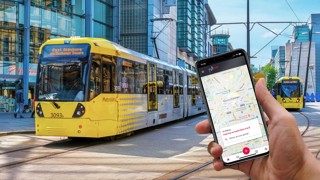A new report by Transport Systems Catapult (TSC) claims a lack of sharing data within the transport sector could cost the UK £15 billion by 2025. Open data, it says, is key to fuelling innovation for new mobility solutions and improving technologies such as driverless cars, journey planners and smart ticketing.
The open data movement is shown many times over to have an overwhelmingly positive ROI. For instance, McKinsey found potential benefits equivalent to 4.1% of global GDP for open data across all sectors. This is especially true when it comes to transport, since it involves inherently complicated systems. And once Mobility as a Service (MaaS) is widespread, open and accurate data will be even more important.
MaaS describes the idea that we’re moving away from privately-owned modes of transportation and towards consuming transportation solutions as a service. This will be enabled by blending both public and private transportation providers across multiple modes of transportation, and providing a single-access interface for managing trips.
For MaaS to become a reality, there must be access to data that reflects real-life customer experience as closely as possible. In other words, open data is necessary but not sufficient – if a MaaS provider leverages raw open data, they will have many opportunities to create a bad user experience. Accurate, high-quality data is therefore critical.
We’re at the beginning of the next big revolution in transportation. Things have remained largely static for the past 100 years since the introduction of the underground in public transport and the car in general. So any innovation represents a paradigm shift.
We are already seeing differences in the way we get around, with the rise of shared economy platforms such as Uber, and with car sharing and car club businesses. Of course, the arrival of autonomous vehicles will also greatly impact provisioning of transport services.
MaaS has the potential to transform our society by changing the way people move from place to place, but more open and more accurate data will be absolutely key to making this happen.





















Login to comment
Comments
No comments have been made yet.